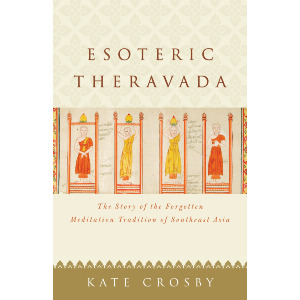The actual talk begins at the 9:00 minute mark.
This is a fascinating exploration of Theravada Buddhism in Southeast Asia. In the process you will learn about the richness of the tradition that is not always visible in its more prominent institutional forms we associate with Theravada today.
The warfare, disease and disruption to the status quo that came with European colonialism to the countries of Theravada Buddhism seemed to fulfill ancient predictions of the calamities that would attend the decline of the Buddhist religion. In their responses to the practical and conceptual challenges of colonialism, Buddhists took inspiration from the canonical and commentarial texts that contained both such predictions and potential counter measures.
These texts thus inspired both adaptive and conservative responses aimed at preserving the Buddha’s teaching and maintaining the availability of spiritual progress. Despite finding inspiration in the same texts, the resulting forms of Buddhism have often taken markedly opposite directions, ranging from secularised and modernist approaches on the one hand, to the reactionary and fundamentalist approaches on the other.
Examples of adaptive responses include modern Mindfulness, the dismissal or reinterpretation of traditional cosmology and rebirth from Theosophy onwards, and ‘common-sense’ interpretations of Buddhist ritual or monastic rules. In contrast, all of these types of response have been the subject of non-Dharma/non-Vinaya, or ‘heresy and malpractice’, trials in modern Myanmar, with defendants being found guilty for straying from the detailed teachings on these subjects found in the Pali canon, commentaries and Abhidhamma. This talk will illustrate the different directions taken to protect Buddhism from colonialism in different Theravada countries and the ramifications for both Theravada and global Buddhism today.


